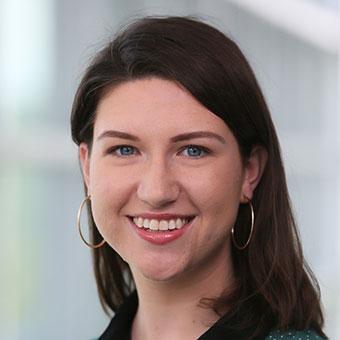Miranda Gavitt

“Uncovering the Mechanism of Reovirus Uncoating by Molecular Chaperone Hsc70”
Miranda Gavitt, Tijana Ivanovic
Brandeis / Biological Physics
Hosted by Ivanovic's Lab
Abstract
Viruses must attach to their host cell, be internalized, and then shed portions of their protein capsules to expose their genetic information to cellular factors for reproduction. Large nonenveloped viruses such as Mammalian orthoreovirus (reovirus) enter the host cell through the endocytic pathway where the virus particle is partially uncoated. Released components of the viral coat then perforate the endosomal membrane and a final uncoating step reveals the core particle in the target-cell cytoplasm. Hsc70, a host cell chaperone protein, is required for this final uncoating step to remove the outer coat protein μ1. Hsc70’s target on the reovirus particle is unknown and more work is needed to understand how this cellular factor triggers uncoating. We have made steps to develop the tools needed to pursue these questions.
We made mutations to the sequence of μ1 in a baculovirus expression vector that we predict will affect Hsc70 binding. This mutant μ1 protein will be purified from insect cells infected with baculovirus expressing the protein. We produced and validated the required antibodies to test for the proper folding of the mutated μ1 protein. Additionally, we purified wildtype reovirus particles that we will then uncoat by proteases in vitro to reveal core particles then recoat them with the mutant μ1. We will then use the recoated particles to observe the extent of Hsc70 binding and any changes in the kinetics of virus particle disassembly via TIRF microscopy. This will give us insight into Hsc70’s interactions with the reovirus particle and how this contributes to the mechanism of uncoating.
Support
SMURF (Summer MRSEC Undergrad Research Fellowship)